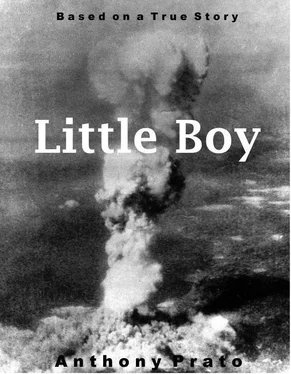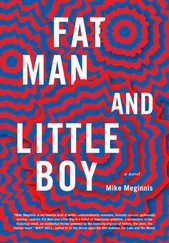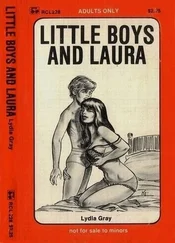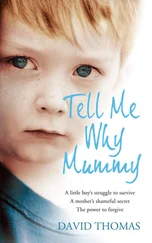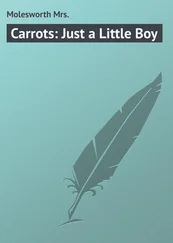Christopher Prato - Little Boy or, Enola Gay
Здесь есть возможность читать онлайн «Christopher Prato - Little Boy or, Enola Gay» весь текст электронной книги совершенно бесплатно (целиком полную версию без сокращений). В некоторых случаях можно слушать аудио, скачать через торрент в формате fb2 и присутствует краткое содержание. Год выпуска: 2013, Издательство: Smashwords, Жанр: Современная проза, на английском языке. Описание произведения, (предисловие) а так же отзывы посетителей доступны на портале библиотеки ЛибКат.
- Название:Little Boy or, Enola Gay
- Автор:
- Издательство:Smashwords
- Жанр:
- Год:2013
- ISBN:нет данных
- Рейтинг книги:3 / 5. Голосов: 2
-
Избранное:Добавить в избранное
- Отзывы:
-
Ваша оценка:
- 60
- 1
- 2
- 3
- 4
- 5
Little Boy or, Enola Gay: краткое содержание, описание и аннотация
Предлагаем к чтению аннотацию, описание, краткое содержание или предисловие (зависит от того, что написал сам автор книги «Little Boy or, Enola Gay»). Если вы не нашли необходимую информацию о книге — напишите в комментариях, мы постараемся отыскать её.
Little Boy or, Enola Gay — читать онлайн бесплатно полную книгу (весь текст) целиком
Ниже представлен текст книги, разбитый по страницам. Система сохранения места последней прочитанной страницы, позволяет с удобством читать онлайн бесплатно книгу «Little Boy or, Enola Gay», без необходимости каждый раз заново искать на чём Вы остановились. Поставьте закладку, и сможете в любой момент перейти на страницу, на которой закончили чтение.
Интервал:
Закладка:
But it wasn’t just academics. Maybe a better way to describe what happened is this: I stopped gaining knowledge. The older I got, the less I wanted to learn. As a matter of fact, maybe I never wanted to learn at all, even when I was five or six. But by my late teen years I had experienced an emotion generally reserved for the middle aged and elderly. The word I liked to use at the time—and the word I can still use now, really—is jaded . I was jaded. I’d just about had enough with school and tests and learning and all that bullshit. Like that time I worked in the office over the summer. I was really excited to get the job, because it paid a lot, and it was near dad’s office downtown. But I remember the first thing I said to my dad as I walked through the door of my house after my first day at work: “This job sucks.”
And I really did hate it already, after only one day at work. When I got to work, my boss explained my responsibilities to me—some photo-copying, some collating, some phone calls, some errands, and what not. The usual office bullshit. I knew it would be a boring job, but I also knew that Dad had gotten it for me, so it was kind of important that I impress the boss and my co-workers, and make my dad look good. I didn’t have to kiss their asses or anything, I just had to do as I was told. I couldn’t just go through the motions of working. I had to show them I cared about getting the job done right.
But I didn’t care. The moment I left the office on the first day, I knew that I’d loathe every day I spent at that place until it was all over. It wasn’t a matter of simply hating the work. It’s why I hated it—because I’d mastered all of it on the first day. I did some photo-copying, made a few phone calls, faxed some documents, wrote some memos. And then I was bored. I know how to do all this shit , I thought, so why bother coming in tomorrow? And my goddamn boss expected me to repeat these mundane tasks all summer long.
Christ, I can’t tell you how awful that summer was. I did everything to escape boredom. The office had an airy bathroom with a huge window in it. For some reason, it remained open throughout the summer, sucking an air conditioned draft right outside where it met the humid New York air. Occasionally, I’d race into the bathroom not to take a shit, but to elude the sheer boredom of the job. Staring out that window, gazing up at my dad’s building in lower Manhattan, I’d light a cigarette and blow the smoke into the hazy exhaust rising from the streets below. Occasionally, I’d spot a Concorde jet racing over the Manhattan skyline across the East River, en route to Europe, or some other faraway place. Dreaming of the excitement of sitting in that cockpit, longing to be a pilot with an exciting mission to conquer each new day, I’d smoke and smoke and smoke, wondering how the hell I’d ever survive at the Air Force Academy if I couldn’t even tolerate the most simplistic office tasks.
What the hell , I figured, I’m better than this job, I was born to fly . I’ll show Colorado Springs a thing or two . I knew all I had to do was wait, wait for the end of the work day, the end of each summer, the end of high school, when I’d finally rediscover my mind and refresh it daily with the thrill of aviation.
Until then, however, I’d keep collecting paychecks or taking tests, just like every other schmuck in the world. Why , I thought, do employers pay people to do grunt work—to staple and fax and file? It just proves that everyone out there is full of himself . The average Joe endures the toil of the most ho-hum work simply to feel better about placing it on his resume and feigning its importance to get a slightly higher paying, but equally menial, job. These are things I never realized before that summer job.
All this ties into me losing knowledge. Suddenly, nothing around me was interesting. Well, that’s not true, exactly. I liked TV. I was into girls. I’d occasionally read a good book. I loved cigarettes. But that was really it. Besides those things, not much really caught my eye, and not much was worth paying attention too.
I remember reading a book called The Little Prince back then, thinking that it described my life so well. I identified not only with the story, but with the author. It was written by Antoine Saint-Exupery, who was one hell of a pilot during World War II. His plane disappeared off the coast of France in 1944, when he was gathering intelligence on the Nazis for his native France. What a cool way to die. I remember thinking that if I could choose my own death, it would be just like his. That way, I wouldn’t actually die; I would just “disappear” one day while flying, while doing what I love to do.
Years before the war, Saint-Exupery flew a Caudron C-630 Simoun, a very small plane but still a beauty. It’s WEFT: 34-foot, 2-inch wings; a Renault Bengali 6Q-09 inline 220 horsepower piston engine; a slab-sided, light alloy fuselage; and a single tailfin, rounded at the top. On December 30, 1935, Saint-Exupery’s Caudron crashed in the Sahara desert. He and his co-pilot survived the crash landing, but according to his memoir they had only grapes, two oranges, and some wine, hardly enough to make it through the first day. By the third day they were dehydrated and experienced hallucinations. On the fourth day they were rescued by a Bedouin on a camel. The Little Prince begins with a pilot being marooned in the desert, probably a reference to Saint-Exupery’s experience.
The book was inspiring, and it described me perfectly. In it, the little prince spends all of his time cruising around the galaxy on a rocket ship, ostensibly searching for fuel, but in actuality for the meaning of life. The little prince loathed grown-ups because everything to them was a “matter of consequence.” In other words, everything was so serious to the grown-ups that they never took the time out to use their imaginations. I remember that in the book, the little prince makes a compelling comparison. He says that, on the one hand, you could sit around doing complicated mathematical equations all day, making believe you were accomplishing something. On the other hand, you’re really not doing a damn thing unless you’re using your imagination. I guess what he was trying to say was, why should anyone get praise or pay for doing something that requires no imagination, no emotional quotient? I always thought that was very profound.
I think that around that time—right around when I went out with Maria, even before I broke up with Lynn—was when I started becoming caught between the two extremes, like a fly trapped in a web. I was growing up, I guess, so I had to start acting serious, to appreciate “matters of consequence,” however inconsequential they were. Dad, you wanted me to do well at that summer job, and Mom, you wanted me to quit smoking. All ‘matters of consequence,’ if you ask me. But, at the same time, I didn’t want to act serious. That’s why I say I just stopped gaining knowledge. Because the more I learned, it seemed, the more serious I had to be—the less TV I could watch, the less bullshitting I could do. So somehow—and I don’t really know if it was conscious or not—I just tuned out. I really didn’t want any responsibilities. I was trying so hard not to be like the grown-up in The Little Prince . The serious adult I was supposed to become constantly wrestled with what was left of the child. I tried so hard to hold on to that little prince within me that, I don’t know, I somehow wound up being different than both. A lot different.
I really missed Maria after a while. I thought about her constantly—about her voice when I wasn’t speaking to her, about her body when I wasn’t holding her. Sometimes, I even helped myself fall asleep imagining her cuddled in my arms, her perfumed hair draped across my chest like a security blanket. I couldn’t wait to see her again. We continued talking on the phone for a while, and she kept asking me to go out again. But I had to break up with Lynn first.
Читать дальшеИнтервал:
Закладка:
Похожие книги на «Little Boy or, Enola Gay»
Представляем Вашему вниманию похожие книги на «Little Boy or, Enola Gay» списком для выбора. Мы отобрали схожую по названию и смыслу литературу в надежде предоставить читателям больше вариантов отыскать новые, интересные, ещё непрочитанные произведения.
Обсуждение, отзывы о книге «Little Boy or, Enola Gay» и просто собственные мнения читателей. Оставьте ваши комментарии, напишите, что Вы думаете о произведении, его смысле или главных героях. Укажите что конкретно понравилось, а что нет, и почему Вы так считаете.
